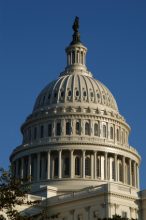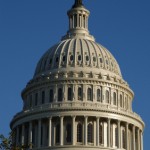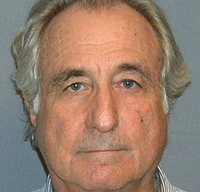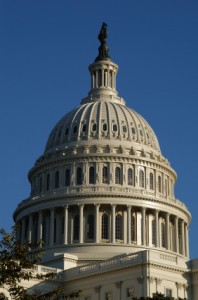Advisor Marketing Success OR “You’re Fired!”

This Wall Street Journal article points out that many Regional Broker/Dealers are raising minimum production amounts. If you’re feeling some heat from your broker/dealer, you have two choices. Improve your marketing to raise your production…or fire your BD! After the article you can find ideas on both of these choices.
Regionals Raise Broker Production Minimums
By Kristen McNamara
The barrier to entry for would-be brokers at some regional firms is getting higher. And brokers already working at those firms are finding they have higher hurdles to clear, too.Financial advisers who move to regional broker-dealers from large Wall Street institutions often generate more in fees and commissions than regional incumbents. Some of these new arrivals want to work at smaller organizations while others are pushed out by wirehouses which are trying to shed what are, for them, lower producers.
The amount of client money wirehouse brokers oversee, and their corresponding pay, is generally much higher than that of the regional brokers. That means low-producing wirehouse brokers can still generate more revenue than the average regional broker.
The average amount of money overseen by a wirehouse broker was $71.9 million at the end of 2008, according to research and consulting firm Cerulli Associates’s most recent data. That’s more than double $31.9 million in average assets per regional financial adviser, according to Cerulli.
The number of brokers migrating to regionals from wirehouses jumped between late 2008 and the first half of 2009. Several Wall Street giants that merged focused on keeping their biggest brokers — generally those producing at least $500,000 a year — by offering them big retention bonuses, while discouraging lower producers from staying with pay cuts.
While the movement of wirehouse brokers to regional firms has slowed considerably in recent months, the influx of wirehouse brokers prompted some regional firms to begin raising production requirement for employees and recruits.
Janney Montgomery Scott, for example, increased last year its minimums for prospective hires to $500,000 in annual fees and commissions and $60 million in assets under management. That’s above the firm’s average production now, which is approaching $450,000.
It also raised to $200,000 from $150,000 the minimum brokers must generate each year or have their payout reduced. It expects to gradually move that minimum higher.
The relatively small size of regional brokerages compared with wirehouses fosters a more collegial culture, according to consultants and recruiters.
“Regionals are certainly looking to raise average production,” says Mindy Diamond, president of executive search firm Diamond Consultants. “At the end of the day, they’ll do it differently” than wirehouses.
Beginning next year, Edward Jones will raise its production requirements for the first time in more than a decade. Brokers who have been with the firm for more than 10 years will need to generate at least $30,000 a month in fees and commissions, and $32,000 if they’ve been with the firm 12 or more years. That compares with a requirement of $27,000 for eight-year veterans today.
The firm says it’s giving brokers plenty of advance notice and has improvement plans to help struggling brokers. Still, those who don’t improve within months may be fired.
“Regional firms don’t have the same level of ruthlessness as large wirehouses,” says Mark Elzweig, founder of executive search firm Mark Elzweig Co.
“Don’t have the same level of ruthlessness….” That’s comforting…not!
Time To Panic?
An old USP for Federal Express was “Don’t panic. Call Federal Express!” Likewise, if you’re below minimum production numbers for your broker/dealer you need to take action now but you don’t need to panic.
What should you do? You should click the “Productivity” link above and implement enough ideas to free up some time to invest in your marketing activities. You also need to free up some cash so you can invest some money in your marketing activities.
You need high return without high risk marketing ideas because you must grow your practice this year. So don’t even consider getting creative and developing your own marketing system. You simply don’t have the time (and probably the money) to create and test advertisements, content, offers, etc.
You need to investigate proven, turn-key, marketing programs designed specifically for financial advisors. Find one you’re comfortable with and go for it! Just resist the temptation to get too creative…when you buy a marketing program you need to stick with the program.
Should You Fire Your Broker/Dealer?
This puts an entirely different spin on this topic. Maybe you’re tired of your BD’s compliance standards and unpredictable approval process. Maybe you’re producing enough for your lifestyle but not enough for your BD’s higher production standard. There are alternatives out there to consider who have lower production minimums.
Contact me and I’ll give you some suggestions. Got a great BD? Add your comments below and let us know all about them.
Don’t Forget About State Estate & Inheritance Taxes

 The federal “death tax” may or may not rise from the dead in 2010. However, Washington State may double its state estate tax to 38% for estates at or above $9 million. Will other states follow this year?
The federal “death tax” may or may not rise from the dead in 2010. However, Washington State may double its state estate tax to 38% for estates at or above $9 million. Will other states follow this year?
Washington state proposes ‘shocking’ estate tax changes
The Washington state Legislature has proposed a bill that would double the estate taxes for residents.
Currently, there is a $2 million exemption in that state, with a 10% tax that climbs up to 19% at $9 million and above. Under the proposed law, the range would jump to a 20% estate tax for more than $2 million, up to 38% at the $9 million mark.
If the latest proposal is enacted, 2011 could be a costly year for some Washington residents: Assuming that the federal estate tax, which lapsed at the end of 2009, comes back next year with a $1 million exemption at 55% as scheduled, Washington residents could be paying in excess of 75% in estate taxes, experts said.
“This is shocking and disturbing, and has very significant ramifications for the majority of our clients,” said Tom Gores, a partner in Perkins Coie LLP, a law firm with offices in Seattle and Bellevue, Wash. “We are contacting our state representatives to make sure they understand this.”
Already, a number of wealthy clients are discussing leaving the state due to the high estate taxes, and this number will only increase, said Dean Butler, an attorney at Carney Badley Spellman PS. The bill, HB 3184, was proposed Feb. 13 and has not yet been scheduled for a hearing, said Rick Person, a coordinator for the House Finance Services Committee. The legislative session ends March 11.
Small businesses already are planning to lobby against the bill. “Our greatest concern is that this bill is another threat to small businesses at a time when so many of them are still just holding on,” said Jocelyn McCabe, a spokeswoman for the Association of Washington Business, which represents 6,900 state businesses.
Experts predict that given the number of states with growing deficits, Washington won’t be alone in proposing such legislation this year.
For financial advisers, this means that it’s more important than ever to pay attention to what’s going on locally, said Gail Cohen, head of global wealth management at Fiduciary Trust Company International. “Don’t assume that just because there is no federal estate tax, there won’t be any estate tax at all,” she said.
Source: http://www.investmentnews.com/apps/pbcs.dll/article?AID=/20100216/FREE/100219915
There are currently 14 states and the District of Columbia which have state estate taxes. You can click here to see a chart of the states and the exemption amounts. Did you know that 7 states have an inheritance tax? Click here for a chart and be glad your state is not listed!
Washington Reforms Health Care And Taxes

 Tax Attorney Ed Lyon comments on Sunday’s healthcare reform bill and how it could affect your tax bill and your clients’ tax bills.
Tax Attorney Ed Lyon comments on Sunday’s healthcare reform bill and how it could affect your tax bill and your clients’ tax bills.
Did you hear the reconciliation bill “adds a 3.8% ‘Unearned Income Medicare Contribution’ on investment income – specifically, interest, dividends, annuities, royalties, capital gains, and rents – for taxpayers with Adjusted Gross Income above $200,000 individuals and $250,000 families”? I wonder if AARP signed off on that little detail?
Washington Reforms Health Care And Taxes
Sunday’s night’s health care bill will go down as one of those once-in-a-generation accomplishments. I’m not here to debate the merits of the bill – historians will still be doing that decades from now. But it’s important to point out some important tax changes included in the bill and the companion “reconciliation” bill now before the Senate. (Just how important are they? Well, the Congressional Budget Office says the IRS will need $10 billion and 17,000 new employees to enforce its share of the new rules!)
Here are some of the key tax provisions:
- Starting immediately, certain small businesses with less than 10 employees will get a 35% credit for the cost of providing employee health benefits.
- Starting in 2011, employers will have to report the value of health benefits on Form W2.
- The penalty tax for Health Savings Account distributions not used for health care expenses doubles from 10% to 20%. This will discourage using HSAs for supplemental retirement savings.
- Starting in 2013, the 7.5% floor for deducting medical and dental expenses climbs to 10% (unless you or your spouse are 65 or older, in which case it remains at 7.5% until 2016).
- Healthcare flexible spending account contributions are capped at $2,500 per year.
- Starting in 2014, businesses with more than 50 employees will have to offer heath benefits or pay a penalty of $750/employee.
The reconciliation bill includes one more unwelcome surprise. Currently, the Medicare tax is limited to 2.9% of earned income. The reconciliation bill imposes an additional Medicare tax of 0.9% on earned income above $200,000 (individuals) or $250,000 (families). It also adds a 3.8% “Unearned Income Medicare Contribution” on investment income – specifically, interest, dividends, annuities, royalties, capital gains, and rents – for taxpayers with Adjusted Gross Income above those same thresholds. Those new levies would take effect in 2013.
The complete bill is 1,018 pages, so it’s going to take some time to analyze. But we’ll be paying close attention as details become available. In the meantime, call us with any questions!
Remember that the Reconciliation Bill still needs to pass the Senate. Democrat Senator Ben Nelson announced he will vote “No” because of the Medicare tax on unearned income. Let’s wait and see what happens. To learn more about Ed Lyon’s tax coaching solution go to www.taxcoachsoftware.com.
Marketing Lessons from Warren Buffett

 Warren Buffet released Berkshire Hathaway’s annual shareholder letter on Saturday. Let’s look at this letter and draw some marketing lessons for financial advisors.
Warren Buffet released Berkshire Hathaway’s annual shareholder letter on Saturday. Let’s look at this letter and draw some marketing lessons for financial advisors.
Create an Event. Warren Buffett receives tons of free publicity before, during, and after his eagerly anticipated letter to shareholders is released each year.
What can a financial advisor do? Every April 15th, taxpayers line up at the post office to file their income taxes. You can provide them with hot coffee and cookies. Be sure to tip off your local newspaper about this special “tax relief” effort. Or perhaps there’s an annual charity auction in your town. Donate a free pair of hearing aids and say that “My clients say I’m a good listener and appreciate hearing my financial advice. Let me help someone become a better listener this year.”
Do your event every year and you’ll get lots of publicity from it.
Be Consistent. Warren Buffett writes this shareholder letter every year. Not just in the good years. And he always presents an image of consistent, Midwestern, and reliable investing. You can’t change your branding message and targeted clientele very often or you’ll appear to be appeal to everyone and noone at the same time. Here’s how a blogger for the Wall Street Journal describes this,
Every few years, critics say Warren Buffett has lost his touch. He’s too old and too old-fashioned, they claim. He doesn’t get it anymore. This time he’s wrong.
It happened during the dotcom bubble, when Mr. Buffett was mocked for refusing to join the party. And it happened again last year. As the Dow tumbled below 7,000, Mr. Buffett came under fire for having jumped into the crisis too early and too boldly, making big bets on Goldman Sachs and General Electric during the fall of 2008, and urging the public to plunge into shares.
Now it’s time for those critics to sit down for their traditional three course meal: humble pie, their own words and crow. Source: http://online.wsj.com/article/SB10001424052748704089904575093603081648166.html?mod=WSJ_hp_editorsPicks
Keep Your Brand Fresh. Being consistent in your marketing doesn’t mean never change anything. In today’s Heard on the Street column in the Wall Street Journal, Liam Denning writes that
Warren Buffett’s latest shareholder letter can be summed up thusly: This isn’t your father’s Berkshire Hathaway.
The chairman’s letter was billed, in part, as a “freshman orientation session” for Burlington Northern Santa Fe shareholders receiving Berkshire stock in connection with November’s acquisition. Those investors thinking of buying a slice of Mr. Buffett’s genius now that Berkshire’s “B” shares reside in Standard & Poor’s 500-stock index should join the class.
Mr. Buffett says he has lost his earlier distaste for capital-intensive businesses. Like other mature, successful businesses, Berkshire generates so much cash that deploying it all in high-growth investment opportunities is a stretch even for Mr. Buffett.
…Large, utility-like businesses offer what Mr. Buffett calls “decent” returns on a bigger slug of capital than higher-risk, potentially spectacular returns on smaller investments.
Jeff Matthews, author of “Pilgrimage to Warren Buffett’s Omaha,” reckons Berkshire is becoming more of a “widows and orphans” stock, with the investment case resting less on the alchemy of Mr. Buffett’s stock picking. Less exciting, perhaps, but necessary if Berkshire is to carry on after America’s most famous investor hangs up his spurs. Source: http://online.wsj.com/article/SB10001424052748703431604575095743489061252.html?mod=WSJ_Markets_section_Heard#articleTabs%3Darticle
Make it easier for people to do business with you. One of the reasons the shareholder’s letter was a “freshman’s orientation session” was because they added over 100,000 new shareholders during the year.
If you bought an advisor’s book of business you would want to communicate the basics of doing business with you: communication channels. annual reviews, etc. If you added 10 new clients per living trust seminar, you’d have over 100 new clients at the end of the year. Never assume they know the in’s and out’s of doing business with you or how you invest or how you do financial planning.
Berthshire also did a 50 to 1 stock split to lower the share price of the B shares. A lower price means more people can buy a hundred shares. Plus they’ll be added to the S&P 500 in a few months which means people will buy them when they buy the S&P 500 index.
Perhaps you only accept new clients with a minimum of $500,000 of investable assets. You could add a junior planner and lower your minimum to $250,000. This effectively lowers your “price” and makes it easier for more people to do business with you.
White House Sets New Rules on Retirement Accounts
 Ronald Reagan once said “the nine most terrifying words in the English language are, ‘I’m from the government and I’m here to help.’ Yesterday, Vice President Biden issued the “Middle Class Task Force Annual Report” which included planned rule changes aimed at ensuring workers receive objective investment advice for their 401(k)s and IRAs.
Ronald Reagan once said “the nine most terrifying words in the English language are, ‘I’m from the government and I’m here to help.’ Yesterday, Vice President Biden issued the “Middle Class Task Force Annual Report” which included planned rule changes aimed at ensuring workers receive objective investment advice for their 401(k)s and IRAs.
Will the new rules really help employees? Only time will tell. Let’s start with what the White House announcement:
Also at today’s event, the Vice President announced that the Department of Labor is proposing new protections for workers with 401(k)s and IRAs. These new protections are an important step in the Administration’s efforts to make the retirement system more secure for middle class workers and families. The regulations will protect workers from conflicts of interest and expand the opportunities for employers to offer workers the expert investment advice they need to make the best possible decisions about how to save their hard-earned wages.
“A secure retirement is essential to workers and the nation’s economy. Along with Social Security and personal savings, secure retirement allows Americans to remain in the middle class when their working days are done. And, the money in the retirement system brings tremendous pools of investment capital, creating jobs and expanding our economy,” said U.S. Deputy Secretary of Labor Seth Harris. “These rules will strengthen America’s private retirement system by ensuring workers get good, objective information. When that happens, workers make the kind of decisions that are good for their families and the nation as the whole.” Source: http://www.whitehouse.gov/the-press-office/vice-president-biden-issues-middle-class-task-force-annual-report
So how will this affect financial advisors? Here’s what the Financial Times had to say:
The new rules would require retirement investment advisers and money managers to either base their advice on computer models that have been certified as independent, or they would prohibit them from suggesting workers to invest in funds with which they are affiliated or from which they receive commissions. Source: http://www.ft.com/cms/s/0/d81ac69a-22f3-11df-a25f-00144feab49a.html?nclick_check=1
This sounds ominous because financial advisors will either need to use independently certified computer models or no longer suggest funds for which they receive commissions. Remember that the rules have been proposed and could change. And they don’t affect all investors. Yet.
The Department of Labor issued a related press release which partly clarifies who would be covered by these proposed rules:
The first of the two rules would ensure workers receive unbiased advice about how to invest in their individual retirement accounts or 401(k) plans. If the rule is adopted, it would put in place safeguards preventing investment advisors from slanting their advice for their own financial benefit. Investment advisors also would be required to disclose their fees, and computer models used to offer advice would have to be certified as objective and unbiased. The department estimates that 2 million workers and 13 million IRA holders would benefit from this rule to the tune of $6 billion.
The second rule announced today establishes new guidelines on the disclosure of funding and other financial information to workers participating in multiemployer retirement plans — those collectively bargained by unions and groups of employers. It will ensure transparency by guaranteeing workers can better monitor the financial condition and day-to-day operations of their retirement investments. The rule will go into effect in April 2010. Source: http://www.prnewswire.com/news-releases/us-labor-department-rules-to-improve-retirement-security-announced-as-part-of-white-house-middle-class-task-forces-year-end-report-85499197.html
These rules stem from the Obama Administration’s goal of helping the middle class. Many 401(k)s became 201(k)s and with the stock market bounce might be back to 301(k) level now. Will these rules help? Only time will tell. Are the proposed rules realistic? Let’s end with a quote from a Reuters story:
“Expert advice can be helpful, but that advice must be unbiased and there must be no risk that the adviser will benefit from steering workers to particular investments,” Deputy Labor Secretary Seth Harris said at the event. Source: http://www.reuters.com/article/idUSTRE61P26O20100226
You can watch the 29 minute White House announcement here. The part dealing with retirement account protection is the first 10 minutes.
Why “The Lost Decade” is Good News for Financial Advisors
Do you normally see the glass as half empty or half full? I’ve always been a “half-full” kind of guy even when the glass is maybe 1/8 full. I just don’t see the 7/8 empty and just charge ahead undaunted!
It doesn’t take a Wall Street Analyst to see the past decade was a downer for most Americans. The joke about the 401k becoming a 201k is sad/funny just because it’s true for so many people. Of course, the joke should be modified a bit because with 2009 stock market bounce many people now have 301k’s!
Why is this an opportunity for independent financial advisors?
Because many folks tried a “do-it-yourself” approach to retirement planning and investments and came up short over the past 10 years. Their goal of retirement got pushed out so they know they need to do better and soon. Your task? Let them know independent, objective and well-informed advice can help them reach their financial goals.
So read this article from The Daily Reckoning knowing that plenty of folks in your city need your help to reach their financial goals. Your job is to attract their attention, let them know what makes you different and how that can help them, and then get to work helping them.
The Lost Decade
By Ian Mathias
01/04/10 Baltimore, Maryland – Before we dive into 2010, let’s close the books on the last 10 years — that decade of reckoning. We noted before Christmas that, as we forecast long ago, the major stock indexes were a bust for the decade. But check this out… Were the last 10 years a wash for the whole economy?
So what’s the term for 10 years of no growth in jobs, the slowest GDP growth in 70 years and a 4% fall in inflation-adjusted net worth? Dormancy? Depression? Whatever it is… ouch.
“Historically, downturns have been enormously creative times technologically,” notes Patrick Cox, our tech analyst. “Our current economic mess will be no exception. Economic pressures are forcing reassessments and hard, creative choices. The result will be an explosion of breakthrough technologies. Nobel laureate economist Gary Becker is just one of those studying business cycles who predicts that the recovery from our current mess will be unparalleled and spectacular…
“In the early 1400s, German goldsmith Johannes Gutenberg invented the movable-type printing press. This invention did far more than facilitate book production and increase the availability of knowledge. It started an information technology (IT) revolution that continues to accelerate even today.
“In Gutenberg’s era, his advances in lithography not only increased access to the world’s greatest thinkers. They also put practical business and technical knowledge in the hands of commoners. This seemingly insignificant invention smashed monopolies of thought and political power. The result was exponential growth in science, technology and democratic ideals. The Renaissance and the Enlightenment followed, on up to our present era.
“We’ve already seen a series of printed circuit lithography technologies revolutionize the electronics industry. Every electronic device you own — from your television to your mobile phone — contains a lithographically printed circuit board of one form or another. Like many of the transformational technologies of the last century, it was invented during the Great Depression. The timing was not a fluke.”
Advisor Marketing After the “Year of the Ponzi Scheme”
 The Wall Street Journal called 2009, “The Year of the Ponzi Scheme.” Many people heard of the term “Ponzi Scheme” for the first time only because of the size of Bernard Madoff’s deal: $50 billion. Sadly with interest rates near zero, many retired people look at high returns delivered by such schemes and get sucked in with their life savings.
The Wall Street Journal called 2009, “The Year of the Ponzi Scheme.” Many people heard of the term “Ponzi Scheme” for the first time only because of the size of Bernard Madoff’s deal: $50 billion. Sadly with interest rates near zero, many retired people look at high returns delivered by such schemes and get sucked in with their life savings.
Someone commented on this with an article about a change in due dilegence. It suggests that financial advisors should investigate the ethics and integrity of the managers of recommended investments. Don’t just look at returns, look at WHO is generating those returns. Can this be done? Should you be held to this standard?
Time will tell if the Ponzi Schemes of 2009 lead to regulatory changes in 2010.
The Year of the Ponzi Scheme
If you weren’t familiar with the name “Ponzi” last year, you sure learned it quickly this year, along with the names “Madoff,” “Dreier,” “Petters,” and all the others who followed in the footsteps of the notorious fraudster Charles Ponzi.
That’s because, as the Associated Press reports, the number of Ponzi schemes that came to light in the U.S. has nearly quadrupled in the last year. The schemes, in which perpetrators lure investors with promises of high returns and use new investors’ cash to pay the old ones (and, of course, grab cash for themselves), topped 150 this year, compared to about 40 last year.
As a result, the AP says “tens of thousands of investors” lost more than $16.5 billion this year. That figure doesn’t include the $19.4 billion that Bernard Madoff is estimated to have bilked his investors out of in the largest Ponzi scheme ever, because Madoff was arrested in December 2008.
The AP’s review of federal and state criminal cases found that amid the recession and heightened public awareness of Ponzi schemes, the federal government stepped up its pursuit of suspected fraudsters. The Federal Bureau of Investigation launched more than 2,100 probes into securities fraud, up from last year’s 1,750 investigations, and it increased by one-third the number of agents working on high-yield investment fraud cases. And the Securities and Exchange Commission issued 82% more restraining orders and devoted more of its workload to investigating potential scams.
Source: http://blogs.wsj.com/bankruptcy/2009/12/29/the-year-of-the-ponzi-scheme/
NATIONAL BUSINESS MEDIA NOT COVERING TRUE REASONS FOR INVESTOR FRAUD SCANDALS
Dale Yeager a nationally known criminal analyst says that news coverage of the recent investor scandals is missing a critical aspect of these crimes. This overlooked issue is something Yeager calls the “Due Diligence Mess.”
Yeager, says the problem is the antiquated way due diligence is performed for investors.
“The financial crimes of the past year will continue to occur unless radical changes are made in the due diligence process,” states Yeager. “Due diligence must be performed as a criminal investigation not just a financial assessment.”
Based on his experience performing over 200 financial investigations, he believes that the focus must be on the ethics of the people operating the organization the investor will be placing their money into.
“Due diligence is about assessing a person’s credibility” states Yeager, “and people assessment has and always will be the domain of forensic psychology. Look at the amount of negative information that reporters have discovered about Madoff over the past few months. Information that provides a specific psychological profile of him, showing a lifelong pattern of narcissistic and unethical behavior.”
Yeager lays out a plan of action to prevent investor fraud with his article, “The Due Diligence Mess: 3 Reasons Why Ponzi Schemes and Investor Fraud Will Continue”.
“People have become accustom to using forensic accountants,” states Yeager. “But they need to become accustom to using that process in accessing behavior and personal ethics.
NY Times Editorial: “An Estate Tax Mess” and Your Clients
 You need to keep your finger on what’s hot in the economy as well as in the political realm. Do you sense a growing wave of discontent with what the “political class” is doing to the middle and even upper classes these days? Wall St. gets a bailout and Main St. is left to fend for itself?
You need to keep your finger on what’s hot in the economy as well as in the political realm. Do you sense a growing wave of discontent with what the “political class” is doing to the middle and even upper classes these days? Wall St. gets a bailout and Main St. is left to fend for itself?
The failure of Congress to means that the super rich (maybe 5500 estates in the US) will benefit from the repeal of the estate tax for 2010. Congress’ failure also means that approximately 70,000 families will get hit by the repeal of the step-up in basis. As this word gets out on this, you’ll see editorials in your local paper like this one in yesterday’s New York Times.
You need to get up to speed on all of this and communicate what’s going on to your clients. Then you’ll be in a position to help your clients take evasive action appropriate steps to protect their estates. While you’re helping your upper end clients with this, don’t forget to ask them if they have friends who need similar advice. Maybe you can talk to them before their advisor gets up to speed.
An Estate Tax Mess
Published: December 27, 2009
For much of the last eight years, the majority Republicans pushed through tax break after tax break that mostly benefited the wealthy. Now in the majority, Democratic lawmakers have failed to stop yet another tax benefit for the richest of the rich from taking effect in 2010.
The tax in question is the estate tax, which President George W. Bush and Republicans and some Democrats in Congress were determined to cut from the day Mr. Bush took office in 2001. Even then, the tax hit only a tiny portion of Americans, but estate-tax foes sold Americans a myth about a “death tax” that prevented average people from passing on hard-earned money.
The result was a measure that made big reductions in the federal estate tax, phased in through 2009, and then repealed the tax, for one year only, in 2010. After that, the tax is to be reinstated at pre-2001 levels. Writing the law in that convoluted way helped to mask the true costs. It also created an untenable situation in which a one-year repeal is followed by reinstatement.
There was a giant catch, as well. In 2010, the one-year repeal of the estate tax is coupled with a new tax that will hit smaller estates. That tax could affect up to an estimated 70,000 estates next year, compared with the current estate tax law, which applies to about 5,500 estates annually. If that sounds wacky, it is. It would also be harmful to many small family businesses, precisely the group that estate-tax cutters say they want to help.
Today, the estate tax applies to estates that are worth more than $7 million (for couples), or $3.5 million (for individuals). More than 99 percent of all estates are exempt, so there is no reason to reduce or repeal the tax.
In addition, under today’s law, when heirs sell inherited property, no capital gains tax is due on the increase in value that occurred during the lifetime of the original owner. (If your parents pass on stock worth $2 million that they bought for $200,000, and you sell it for $2 million, you owe no tax on the $1.8 million gain.)
But when the estate tax is repealed in 2010, the capital gains tax will kick in once the gains in an estate exceed $1.3 million. There’s an extra $3 million exemption for assets left to a spouse.
The bottom line is this: there will be many more losers than winners under estate-tax repeal, and the losers will be among Americans who are farther down the wealth ladder.
Earlier this month, the House voted to continue the estate tax permanently as it is this year, with its more-than-generous exemptions and no tax on the sale of inherited assets.
The Senate has failed to act. Republicans refused to consider the House bill or even a two-month delay to allow time for debate. Democrats correctly refused to consider a proposal to increase the exemption to $10 million for couples and $5 million for individuals, an unconscionable giveaway to the wealthy at a time when ordinary Americans are suffering. Compared with keeping the 2009 law, it would cost $250 billion more over 10 years.
Democratic Senate leaders have said that in 2010, they will seek to restore retroactively the 2009 estate tax rules. Fairness, progressivity and the need for revenue demand just that. But failure to act in a timely way is a disturbing display of intransigence and failed leadership. That bodes ill for the more daunting tax debates next year, when the rest of the Bush tax cuts are set to expire.
American taxpayers need — and deserve — better.
Not Just Estate Tax Expiring at Year End
 [Richard: The debate over healthcare reform has sucked all the air out of Washington DC. Not just the hot air…the result has been over 50 tax breaks for business and individuals will now expire on December 31st. Get ready for lots of questions from your clients.]
[Richard: The debate over healthcare reform has sucked all the air out of Washington DC. Not just the hot air…the result has been over 50 tax breaks for business and individuals will now expire on December 31st. Get ready for lots of questions from your clients.]
Congress Lets 50 Tax Breaks Expire
http://www.forbes.com/2009/12/22/tax-amt-research-credit-senate-personal-finance-expiring-tax-breaks.html
Ashlea Ebeling, 12.22.09, 3:00 PM ET
When members of the U.S. Senate finally head home this week, they will be leaving the future of 50 individual and business tax breaks in limbo. All expire at the end of 2009.
Among the disappearing breaks are the research tax credit and an annual alternative minimum tax “patch,” which keeps 23 million additional middle-income Americans from being forced into calculating and paying the dreaded AMT. (For 2009, with the patch in place, 4 million upper-middle- and high-income families will pay AMT.)
Most of the fading-out-50 can, and likely will, be reauthorized retroactively, creating an inconvenience for some taxpayers, but not the same sort of mess as Congress’ failure to resolve the future of the estate tax. The estate tax will expire at the close of Dec. 31 and Democrats are pledging to resurrect it retroactively, leading to all sorts of potential legal problems, as well as some planning opportunities for wealthy families.
Among the expiring individual tax breaks: the deduction for state and local sales taxes for itemizers (which benefits mainly residents of states that don’t impose an income tax); the additional $1,000 deduction for real estate taxes for those who claim the standard deduction; the $4,000 deduction for college tuition; and a special $250 deduction for teachers who spend their own money on classroom supplies.
This isn’t the first time Congress has let some of the 50 breaks lapse. In fact, expiring provisions have come to be known as “extenders,” because instead of eliminating them or making them permanent and recognizing their true costs, Congress simply extends them year by year.
This time around, on Dec. 9, House Democrats pushed through a bill extending most of the breaks at a cost of $31 billion. The Senate, mired in partisan warfare over health care reform, never took up a similar measure. On Tuesday, Senate Finance Committee Chairman Max Baucus, D-Mont., and Ranking Member Charles Grassley, R-Iowa, issued a joint letter promising to extend the provisions retroactively as soon as possible.
But taxpayers can’t count on early action. “We’ve seen this movie before,” sighs Clint Stretch, managing principal of tax policy with Deloitte Tax. “When this has happened in the past, it’s been literally months before Congress has gotten around to fixing things.” For example, Congress finally included dozens of lapsed tax breaks in the October 2008 bank bailout, making them retroactive to Jan. 1, 2008.
Meanwhile, taxpayers have some decisions to make. For example, if the AMT patch isn’t passed by the time their first 2010 estimated tax payments are due in April, they’ll have to decide whether to pay extra money or risk underpaying and incurring a penalty. One lapsed provision allows taxpayers age 70-and-a-half or older to transfer up to $100,000 directly from an IRA to charity without booking the amount transferred as income. Older folks planning a charitable gift may want to do this before Jan. 1.
For businesses, the lapsing of the R&D credit–a $7 billion a year break–is a particular problem, since companies must plan for long-term research commitments amid uncertainty. Since its enactment in 1981, the credit has been extended 13 times; in the mid-1990s there was a one-year gap when it wasn’t extended retroactively.
[snip]The House extenders bill passed Dec. 9 didn’t include the AMT patch. Stretch says it’s likely the AMT patch and the traditional extenders, including the research credit, will be extended for 2010 sometime next year. Still, with the budget deficit growing, the Bush-era tax cuts set to expire at the end of 2010, and economic advisers to Obama looking at options for tax reform, nothing is certain.
“Who knows what’s going to happen next year?” asks McGuire.
Clock Ticks On Estate Tax
[Richard: Read this update on the non-extension of the federal estate tax. There is some confusion out there: while the House did vote to extend the 2009 rates/exemptions into 2010 and beyond, the Senate didn’t get to it. Read this article for the implications of this non-action.]http://www.fa-mag.com/fa-news/4956-clock-ticks-on-estate-tax.html(Dow Jones)
As Congress appears ready to let the federal estate tax lapse on January 1, a dramatic question is what a repeal will do to millions of less affluent taxpayers.
Many who now would owe neither estate nor capital gains tax on inherited assets will owe significant capital gains. And that’s just one of the troubling aspects of a repeal.
There are also serious questions about how families with ailing relatives would be affected–a subject of gallows humor since a one-year repeal of the tax was first envisioned for 2010 years ago.
Anyone who turns to a professional for help with all of this is likely to find advisers still sorting through the answers. A big question is whether Congress will enact a retroactive tax, and how it would play out.
Catherine G. Schmidt, an estate-planning attorney and partner at the law firm Patterson Belknap Webb & Tyler LLP in New York, says her firm is working in what could be a narrow window to help clients take advantage of the repeal and avoid a retroactive tax. But, she adds, strategies to this end “are not something anybody already has in their pockets.”
Indeed, most advisors truly believed Congress would never let it come to this.
“The estate-planning community is astounded that we’ve reached this point,” said Schmidt.
Under current law, the estate tax disappears for a year in 2010 and then is reinstated in 2011. President Barack Obama blocked a short-term extension Wednesday, but Senate Finance Committee Chairman Max Baucus (D., Mont.) said he will try to move legislation early in 2010 that ensures there won’t be a window where wealthy estate owners who die will escape the tax.
For many advisors, the most striking aspect of a repeal is that, along with the estate tax itself, a step-up in cost basis for income tax purposes would go away. The step-up values inherited assets for tax purposes at what they were worth when the person who bequeathed them died. Starting January 1, though, assets will be valued at the original cost of the asset.
So, at a relative’s death, “families that would not have had to pay the estate or capital gains tax now may have to pay a capital gains tax on assets that have appreciated in value during the deceased person’s lifetime,” said Warren Racusin, chair of the trusts and estates practice at law firm Lowenstein Sandler in Roseland, N.J.
Racusin mentioned a client whose parents gave him Microsoft Corp. stock when he was younger, purchased for relatively little, that is now worth $6 million. If the man were to die in 2009, his family would not owe capital gains tax on the appreciation. And, with good estate planning by the man and his wife, there might be no estate tax due either, because a couple can shelter up to $7 million from federal estate tax.
If the man were to die on January 1, 2010, however, his wife could owe capital gains of around $340,000 on the $6 million, figuring in a $3 million exemption for spouses, and another $1.3 million exemption for whoever inherits.
As for a retroactive tax, it would likely raise some complications if lawmakers wait too long to enact it. Relatives of some people who die in a prospective estate-tax-free period–after the end of the year but before a new tax is enacted–would surely not be pleased. Quite certainly, some would challenge the constitutionality of the tax, according to tax analysts.
Nonetheless, both the lower courts and the Supreme Court historically have defended retroactive taxes. The high court, in fact, has been upholding retroactive tax increases since as long ago as 1874.
Learning From Harvard’s Investment Mistakes
Article: Harvard Swaps Are So Toxic Even Summers Won’t Explain
 Financial advisors can learn a lot about what “not to do” by studying this article on Bloomberg today.
Financial advisors can learn a lot about what “not to do” by studying this article on Bloomberg today.
I’ll summarize what happened and then provide some commentary along with some choice quotes.
- Harvard planned a major campus expansion and wanted to lock in low interest rates 4 years before they needed the money
- Harvard invested in “forward swaps” to lock in “low interest rates” for the project’s financing.
- These investments bets assumed that interest rates would rise from the existing 2.25% level.
- The Federal Reserve Bank subsequently cut short term rates to .26%.
- The value of the swaps went to a negative $460MM by June 2005 as rates rose. Lesson: Understand your downside risk.
- During the meltdown in 2008, Harvard “cuts its losses” on its swap investments by paying over $1 billion to various banks including JPMorgan, Goldman Sachs, Morgan Stanley, and Bank of America. $500 million up front and the rest paid over 40 years.
- “December 2008 was, by an enormous amount, the worst time in history” to terminate the swaps by borrowing money, said Peter Shapiro, a swap adviser at Swap Financial Group.
- This turned out to be the bottom of the market. Oops. “Concerned that its losses might worsen, the school borrowed money to terminate the swaps at the nadir of their value, only to see the market for such agreements begin to recover weeks later.”
Apparently none of these investment notables had read about Ray Lucia’s “Buckets of Money” strategy:
Making matters worse, Harvard disclosed Oct. 16 that its checkbook fund, the general operating account, lost $1.8 billion in the year ended June 30. Lumping the cash account with the endowment was risky, said Louis Morrell, who managed the endowment for Radcliffe College, which is part of Harvard, until 1990.
“They put the operating funds in the endowment –it’s like the guy who has his retirement income in company stock,” said Morrell, who is also the former treasurer of Wake Forest University in Winston-Salem, North Carolina.
This last move meant that Harvard’s operating account fell by $1.8 billion in just one year. So they had to scramble to raise cash.
As vanishing credit spurred the government-led rescue of dozens of financial institutions, Harvard was so strapped for cash that it asked Massachusetts for fast-track approval to borrow $2.5 billion. Almost $500 million was used within days to exit agreements known as interest-rate swaps that Harvard had entered to finance expansion in Allston, across the Charles River from its main campus in Cambridge, Massachusetts.
Lesson here would be don’t invest cash needed for day-to-day expenses.
Harvard Corp. had a 7-member ruling body approve the transactions. This committee included some well-known figures:
- Lawrence Summers, former Secretary for President Clinton, then Harvard President, now serves as President Obama’s Economic Advisor
- James Rothenberg, his Los Angeles-based company, Capital Group, operates American Funds
- Robert Rubin, former U.S. Treasury Secretary and Summers’s previous boss and predecessor at the U.S. Treasury
- Robert D. Reischauer, former director of the Congressional Budget Office.
Lesson here is don’t be swayed by celebrity endorsements.
Other smaller colleges seem to be learning from Harvard’s mistakes:
Harvard’s woes stemmed from misunderstanding its role, said Leon Botstein, president of Bard College in Annandale-on-Hudson, New York.
“We shouldn’t be in the banking business, we should be in the education business,” Botstein said in a telephone interview.
Another lesson is don’t depend on regulators to protect investors:
Summers, along with Rubin and Greenspan opposed the U.S. Commodity Futures Trading Commission’s attempt in 1998 to regulate so-called over-the- counter derivatives, which included agreements like interest rate swaps. At the time, Summers was Rubin’s deputy secretary.
Now Summers is leading the Obama administration’s effort to write stricter rules for the derivatives market “to protect the American people,” he said in October at a conference in New York sponsored by The Economist magazine.
Better late than never I guess.
The article pointed out Summers was forced to resign as Harvard’s president “after he questioned women’s innate aptitude for math and science.” I bet few American housewives would look to forward swaps when the family plans to build a larger home in 4 years.
In fact, I bet most American housewives would question the wisdom of Harvard borrowing money to build buildings when it had $22.6 billion in its endowment. Some 4-year colleges, like Grove City College, don’t build any buildings until they’ve raised the necessary funds and have the money in the bank. Being debt free, Grove City College has tuition less than half of Harvard University. There’s gotta be a lesson in there someplace.
A final lesson: People shouldn’t invest on the basis of what rich and famous people are doing:
“You can be very big and very rich and very smart and still get things wrong,” Shapiro said.
Source: http://www.bloomberg.com/apps/news?pid=20601087&sid=aHQ2Xh55jI.Q
